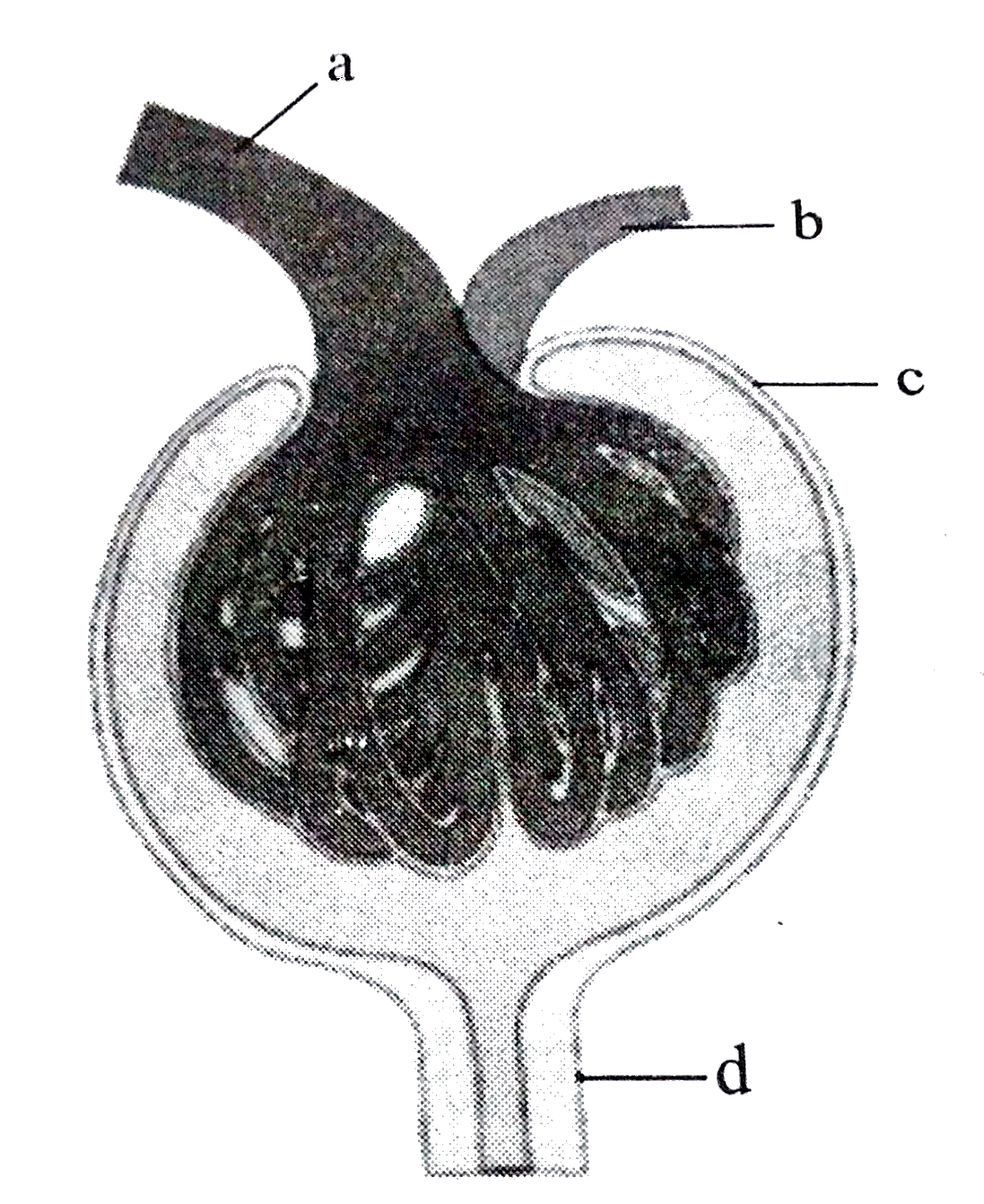The efferent arteriole emerging from the glomerulus forms a fine capillary network around the renal tubule are called
Vasa recta
Paratubular capillaries
Counter-current mechanism
Peritubular capillaries
The correct Answer is:D
To answer the question regarding the capillary network formed by the efferent arteriole emerging from the glomerulus, we can follow these steps:
1. Understand the Nephron Structure: The nephron is the functional unit of the kidney, consisting of two main parts: the glomerulus and the renal tubule. The glomerulus is a tuft of capillaries where blood filtration occurs, while the renal tubule is where the processed filtrate is converted into urine.
2. Identify the Efferent Arteriole: The efferent arteriole is the blood vessel that carries blood away from the glomerulus. It is essential for maintaining the pressure needed for filtration in the glomerulus.
3. Recognize the Role of the Efferent Arteriole: After blood is filtered in the glomerulus, the efferent arteriole branches into a network of capillaries that surround the renal tubule. This network is crucial for the reabsorption and secretion processes that occur in the renal tubule.
4. Name the Capillary Network: The capillary network formed by the branching of the efferent arteriole around the renal tubule is known as the peritubular capillaries. These capillaries facilitate the exchange of substances between the blood and the tubular fluid.
5. Differentiate from Vasa Recta: While the peritubular capillaries surround the renal tubule, it is important to note that the vasa recta is a specific part of the nephron that supplies blood to the loop of Henle, which is a U-shaped structure in the nephron.
Final Answer:
The efferent arteriole emerging from the glomerulus forms a fine capillary network around the renal tubule known as peritubular capillaries.
---
The efferent arteriole emerging from the glomerulus forms a fine capillary network around the renal tubule known as peritubular capillaries.
Topper's Solved these Questions
- EXCRETORY PRODUCTS AND THEIR ELIMINATIONBook:A2ZChapter:EXCRETORY PRODUCTS AND THEIR ELIMINATIONExercise:Section C: Previous Years' Examination Questions (NEET/AIPMT Questions)
Explore 88 Videos
- EXCRETORY PRODUCTS AND THEIR ELIMINATIONBook:A2ZChapter:EXCRETORY PRODUCTS AND THEIR ELIMINATIONExercise:Section D : Chapter-end Test
Explore 100 Videos
- Digestion and AbsorptionBook:A2ZChapter:Digestion and AbsorptionExercise:Section D : Chapter-end Test
Explore 50 Videos
- LOCOMOTION AND MOVEMENTBook:A2ZChapter:LOCOMOTION AND MOVEMENTExercise:Section D : Chapter-end Test
Explore 50 Videos
Similar Questions
Efferent arteriole emerging from glomerulus forms fine capillary network around renal tubule known as____ capillaries.
View SolutionPick the odd ones in each of the following groups and select the correct option
(i). Renal pelvis, Medullary pyramid, Renal cortex, Renal papilla
(ii). Afferent arteriole, Henle's loop, Vasa recta, Efferent arteriole
(iii). Glorerular filtration, antidiuretic hormone, Hypertonic urine, collecting duct
(iv). Proximal convoluted tubule, distal convoluted tubule, Henle's loop, Renal corpuscle
View Solution
Knowledge Check
A minute vessel emerging from peritubular capillary network runs parallel to the Henle's loop forming a 'U'-shaped:-
ADuct of BeliniBDuct of BertiniCVasa rectaDMalphigian tubuleWhat causes the liquid part of blood to filter out from the glomerulus into the renal tubule?
AOsmosisBHigh (hydrostatic) pressureCDiapedesisDDialysisWhich of the following statements about the glomerular filtration is CORRECT ?
I. The hydrostatic pressure of blood in glomerular capillaries allows filtration.
II. The diameter of the efferent arteriole is lesser than the diameter of the afferent arteriole.
III. The fluid collected in the urinary space contains all constitution of blood except RBCs.
IV. The net filtration pressure at the glomerulus is around 40 mm Hg.AI and IIIBII and IVCI and IIDIII and IV
A vein that collets blood from one network of capillaries and transports it directly to a second capillary network in another region of the body, without returning to the heart is called
View SolutionConsider the following statements each with one or two blanks.
(i). Towards the centre of the inner concave surface of the kidney is a notch called (1) through which ureters, blood vesels and nerves enter.
(ii). The medulla of kidney is divided into a few conical masses called (2) projecting into the (3).
(iii). Glomerulus is a tuft of capillaries formed by the (4). artery. Blood from the glomerulus is carried away by an (5) artery.
Which one of the following options correctly fills the blanks in any two of the statements?
View SolutionGiven below is a statement with some blanks. Fill up the blanks correctly -
The male reproductive system consists of two testes. Each testis contains thin folded tubes called the --A-- which meiosis takes place to produce the male gametes, the sperms. These sperms move tothe --B-- (a highly coiled tube formed from the merging of the seminiferous tubules), and then tothe --C-- or sperm duct. The two vasa deferentia merge to form the urethra, which travels to the outside of the body through the penis The cells located between the seminiferous tubules are called --D-- cells and they are responsible for the formation of the male hormone, --E--
View SolutionRecognise the figure .

1.‘a’ is the fine branch of renal Vein
2.'b’ carried blood towards the glomerulus
3. ‘c’ is the tuft of capillaries formed by the ‘a’
4.‘d’ is a highly coiled network of renal tubule.
Which of the following is correct?Â
View SolutionRecognise the figure .

1.‘a’ is the fine branch of renal Vein
2.'b’ carried blood towards the glomerulus
3. ‘c’ is the tuft of capillaries formed by the ‘a’
4.‘d’ is a highly coiled network of renal tubule.
Which of the following is correct?Â
View Solution

